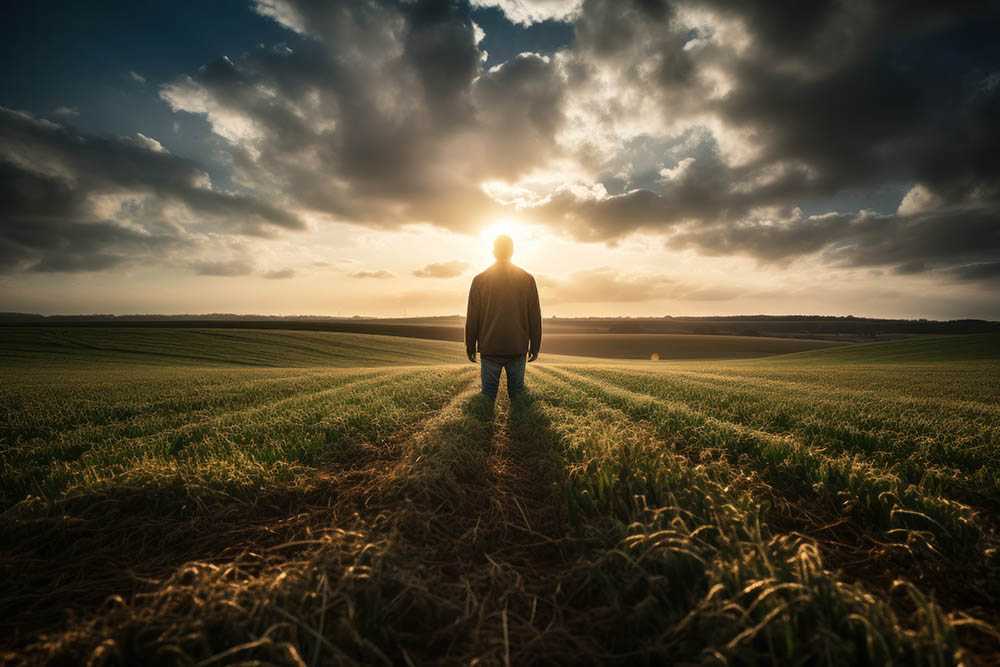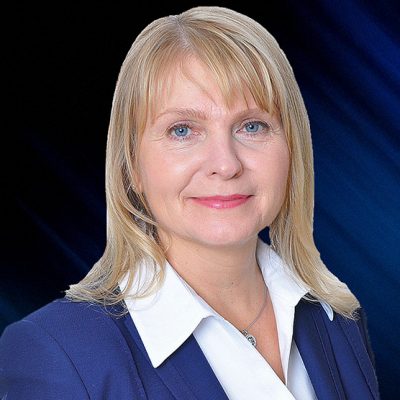Behind the scenes, an often-unseen battle with mental health is quietly affecting farmers and ranchers across the province, a reality that local and provincial mental health professionals are working hard to address.
Rasha Taha, a registered social worker with the Calgary Counseling Centre, has worked with a variety of clients, including those from rural communities. She highlights the unique mental health challenges facing people in agriculture.
“So based off of what I’ve read, some of the experiences that I’ve had working with clients, anxiety and depression are really pretty significant for not just the general population, but they also affect farmers and ranchers in very particular ways,” said Taha.
With anxiety and depression topping the list, the pressures of unpredictability weigh heavily on rural Albertans.
“With anxiety we can see how the uncertainty, unpredictability of weather patterns, of animals, of crops, of politics, of everything that really affects farmers and ranchers, that is going to bring up a lot of anxiety for a lot of folks,” she explained.
Life on the land is filled with constant uncertainty, which can heighten anxiety and lead to depression, says Taha. Feelings of hopelessness are often worsened by the isolation and lack of community support common in farming life.
And while Alberta is vast, so too are the plots of land that farmers call both their workplace and home.
“When it comes to the isolation, if we think about it, farmers and ranchers are on massive, massive, massive amounts of land,” said Taha. “Unless folks are really plugged into their community, unless they have hobbies, or unless they have really strong community ties, then that isolation factor is always going to come up.”
She noted that while urban residents often have multiple community centers, therapy clinics, and health providers nearby, the same cannot always be said for those living and working in the countryside.
In rural areas where farming communities are often isolated, access to mental health care is limited due to both distance and cost.
Taha adds that many people can’t afford to travel for help and that local support systems are lacking. To address this, organizations like Counseling Alberta are offering virtual and phone-based therapy sessions. These services are designed to be affordable and flexible, ensuring that individuals can connect with counselors from home without financial strain.
“There’s a big, big culture shift in terms of a lot of rural folks are very gritty, resilient, pull myself up by my bootstraps kind of folks,” said Taha. “And so even that culture is going to contribute to farmers and ranchers reaching out for support because they may not have necessarily grown up with the notion of reaching out for professional support.”
Mental health support, she said, is still often seen as secondary to physical health.
Taha emphasized the need to break the stigma around seeking mental health support, saying it’s something everyone can benefit from. She highlighted the importance of making services accessible and encouraged communities to check in on each other, even on those who seem fine, because mental health struggles aren’t always visible.
And as Taha says, “My biggest thing is: Give it a go. Give it a try. There’s absolutely no harm in putting in that intake form.”
Lakeland based effort
A group involved with mental health awareness initiatives in the Lakeland says they’re hoping a new event scheduled for this spring will help connect people with supports in a meaningful, personal, and hands-on way.
The Demeria Memorial Fund, a grassroots initiative founded by Rae Michaud, has grown from a family’s personal loss into a community effort to raise awareness and promote mental wellness.
“The Demeria memorial is a group of volunteers that got together because we had a tragedy in my family,” said Michaud.
A family member had been struggling with mental health challenges when Michaud attempted to get them immediate help, only to find no options available at the time.
She described the heartbreaking struggle of trying to get immediate help for a loved one in crisis.
“I tried to find some help for him on the day,” she said, but found that support systems had limitations.
The hospital told her they couldn’t intervene unless he went in voluntarily. “The RCMP couldn’t do anything . . . unless he is going to harm others,” and the mental health line questioned whether it was truly an emergency. “Everywhere I turned, I was hitting a brick wall and not getting the supports I needed,” she said.
The Memorial Fund began as a simple hockey tournament organized by her children. After their team was bumped from another co-ed tournament, Michaud encouraged them to host their own – with a twist.
“So it all basically started out as a hockey tournament. They decided to do a co-ed hockey tournament. And I said well, let’s do this hockey tournament with initiative towards mental health. Let’s focus on it being all about mental health. So that was our first fundraiser.”
The tournaments continued, raising funds and awareness along the way. The group hosted fundraisers and meals, using proceeds to offer suicide alertness courses in workplaces and the community.
In November 2023, the group hosted Stand Up for Mental Health in Mallaig, thanks to a rural mental health grant. A comedian trained three locals, including Michaud, to perform stand-up routines based on their personal experiences.
“[Mental health is] still very untalked about,” acknowledged Michaud. “We had a hard time finding people willing to do it because they’re not comfortable sharing what they’ve gone through.”
Despite some hesitation, the event was well-received. “A lot of people tell me the work we’re doing is good.”
Their latest initiative brings horses into the mix. The “Healing with Horses” sessions were inspired by Michaud’s relative from Minnesota, who runs Serenity Farm and Stables, an operation centered around equine-based mental health programming.
“She has her degree and everything else. And she has done this farm and focuses on mental wellbeing and everything like all her classes are all associated with that right down there.”
Now, those methods are being brought to northeast Alberta.
“To honour these sessions, we’re bringing her in, and we’ve set up several days of different sessions in which people could take different things,” said Michaud.
From May 22 to 26, a farm just south of Mallaig will host the program, which includes sessions focused on anxiety (for both children and adults), PTSD, grief, and even one titled “Caring for the Caregivers.”
While horses are part of the environment, they aren’t the focus of the activities, which are centered on healing, not riding. Workshops range from one to four hours and provide coping strategies, with additional cranial therapy massage sessions available during the same week.
“It’s the first time we’ve ever done this,” she said. “I think people are hesitant.”
But the need for support, especially for farmers and rural families, is still significant.
“We’re not reaching as many people as we would like to. There’s still a huge void out there,” Michaud said. “And farmers, with the stresses of the . . . tariffs, you name it, drought, and everything.”
While Michaud and her husband feel fortunate to raise their own meat on their farm, she recalls the financial strain her mother felt feeding her family of six and says today’s food prices are even more daunting.
She emphasized that while farmers are finally getting better prices for their product, the challenges young farmers face in buying land or homes are immense.
“My husband and I are here on the farm. We’d love it if one of our kids would come to take over the family farm. They can’t afford to,” she said.
Chantel Downes,
Local Journalism Initiative Reporter
Lakeland This Week


